The Week in Review May 25-29
Click here for a roundup of the week's main stories.

România Internațional, 30.05.2015, 14:00
IMF and EC experts have completed another technical assessment mission to Bucharest
IMF and European Commission representatives on Tuesday concluded their technical assessment mission to Bucharest. The current financial program under assessment is due to end this autumn. The talks mainly focused on the changes brought to the Fiscal Code and the economic measures to be implemented after January 1st, 2016. On Monday, the experts held talks at the government headquarters on the impact the reduction of fees and taxes would have on the state budget. The delegation will return to Bucharest in late June, for a full assessment of the current agreement.
New talks on Romanias joining the Eurozone
Romanias President Klaus Iohannis will convene political parties for consultations in an effort to find national political consensus on the countrys joining the eurozone. The President had discussed the issue, on Thursday, with Prime Minister Ponta and the Central Bank Governor Mugur Isarescu. According to a release by the Presidency, a consensus on Romanias joining the Eurozone will allow for the adoption of a national strategy for switching to the euro and of a rigorous timetable for the economic, monetary, legislative and institutional measures, likely to offer a stable and predictable economic development. Also on Thursday the relevant authorities decided to set up a Committee for the Coordination of the Process of Switching to the Single European Currency. According to PM Ponta, the countrys joining the eurozone is not something that should be imposed on people, but something that generates a change in their way of thinking, to the extent of making them understand that this process does not involve only advantages, but also a series of disadvantages.
The European Commission has endorsed Romanias rural development programme for 2014-2020
The European Commission has endorsed Romanias rural development programme for 2014-2020. For its implementation, Bucharest has over 9 billion Euros in European funds in the coming 7 years. The budget earmarked to Romania under the National Rural Development Programme for 2014-2020 accounts for 8.2% of the European Agricultural Fund for Rural Development, the largest of the 24 programmes endorsed on Tuesday. The money will be spent to promote competitiveness and restructure the farming sector, to protect the environment and restructure the agriculture sector, and to encourage economic development, create jobs and improve living standards in the Romanian villages, many of them below the national and EU average levels. Also on Tuesday the Bucharest Senate rejected a simple motion filed by the National Liberal Party, the main opposition party, on the situation in the agriculture sector. Its initiators, who asked for the agriculture ministers resignation, emphasised the main problems facing Romanian farmers, the poorest in the EU, and pointed out that the legislation adopted in the past three years was preventing this sector from developing.
Romania at the South-East European Cooperation Process summit in Tirana, Albania
Romania is determined to contribute to boosting regional cooperation, Romanian Prime Minister Victor Ponta said at the South-East European Cooperation Process Summit in Tirana, Albania. The meeting, attended by all heads of state and government of the SEECP member states, came amidst security challenges in Europe and the Middle East and focused on regional developments and the European prospects of the states in the Western Balkans. The Romanian prime minister said his country was open to promoting certain projects, in particular in the field of energy, infrastructure and cyber security. He also reiterated Romanias support for the continuation of EU enlargement based on the fulfilment of accession criteria. He said the EU should step up accession negotiations with the other countries and provide them with a clear deadline in this respect.
Romania will receive asylum seekers and refugees from outside the EU
Romania is to receive in the next two years more than 2,300 migrants as part of a European project meant to ensure a redistribution of the tens of thousands of asylum seekers who risk their lives to reach the EU. Romania is to receive more than 1,700 asylum seekers who reached Italy and Greece on the Mediterranean Sea as well as another 650 refugees from outside the EU, after the EC asked member states to accommodate, for a period of two years, 20,000 people from third countries, who need international protection. For each refugee received, the European Commission will allot 6,000 euros. The EU Commissioner for Migration, Dimitris Avramopoulos pointed out that this quota of refugee distribution to member states was set depending on four criteria: the GDP, the total number of the population, the unemployment rate and the number of applications for asylum previously registered by the respective country. According to Eurostat, in 2014 Romania granted asylum to 460 Syrians, 120 Iraqis and 70 Afghans.
Steaua Bucharest is Romanias football champion team
Steaua Bucharest won, for the third consecutive time, Romanias football championship. This is the 26th champion title in the football clubs history. The titleholder was decided on Thursday in domestic League Ones last round. Manager Constantin Galcas trainees were held to a blank draw in their away game against CSMS Iasi. Steauas main challenger to grabbing the title, ASA Targu Mures, conceded a 1-2 defeat, on home ground, against the last but one team in the rankings, Otelul Galati, a squad that had already relegated to the second tier of the championship. In the next season, the football League 1 will have only 14 teams to be playing in the play off and play out system.



























